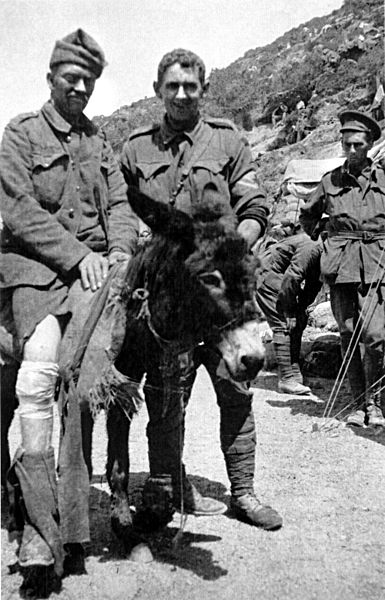Australians have gone to wars for as many reasons as we have opposed conscription.
During the Vietnam Moratorium in Newcastle in 1971, the march paused at a war memorial outside the Post Office on Hunter Street for an elderly miner to address several thousand of his fellow workers:
‘When I was a boy, I was stupid enough to volunteer for the first world war. I’m proud to say that my son fought in the anti-fascist war. We’re both here today to make sure that my grandson isn’t conscripted into another imperialist slaughterhouse’.
Jack Simpson, of donkey fame, had volunteered because he could not find work in Australia and looked forward to getting back to England where, he told his mother, he wanted to see ‘a good revolution that will clear some of these millionaires and lords and dukes out of it’.
As the author of A Fortunate Life, Albert Facey is but the best known of the diggers whose battlefront experiences turned them into pacifists, socialists and, for not a few, Communists. During the 1930s, they resisted preparations for war against fascism overseas if that meant imposing fascism here. At the time, William Campbell – who became the last surviving Anzac – acted as bodyguard for the militant secretary of the Railways Union in Tasmania. When Campbell died in 2002, five women relatives walked beside the gun carriage at his state funeral: ‘Dad was not a man of tradition. After all, he was a republican’.
Any version of Anzac which ignores what these ex-servicemen learned from military service dishonours their sacrifices and their cobbers who did not return.
– Humphrey McQueen, historian


